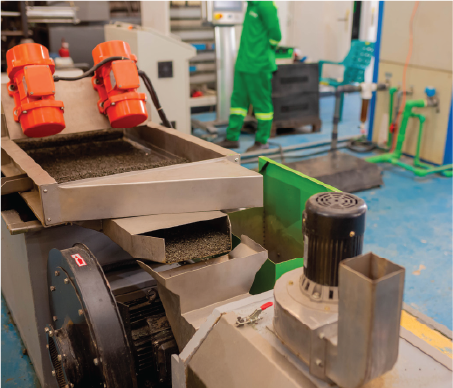Our Impact
SDG 12: Responsible Consumption & Production
Challenge
The low rates of plastic recycling and high levels of plastic waste present a significant challenge to sustainable resource management. This issue is driven by:
- Limited recycling infrastructure, which makes it difficult to process large quantities of plastic waste efficiently.
- Low public awareness about proper waste disposal practices, leading to plastic waste being discarded instead of recycled.
- The inherent difficulties of recycling certain plastic types, which require advanced technology to be efficiently repurposed.
As a result, large amounts of plastic end up in landfills and oceans, where they harm marine life, disrupt ecosystems, and contribute to environmental degradation. Addressing this issue requires a comprehensive, multi-pronged approach that focuses on technology, education, and industry partnerships.
Key Intervention
EEL developed specialized processes to convert waste plastic into reusable pellets and flakes, creating a sustainable alternative to virgin plastic materials. This initiative aimed to:
- Reduce the demand for virgin plastic by ensuring recycled plastic materials could replace new plastic in manufacturing.
- Extend the lifecycle of plastic materials, preventing waste from accumulating in landfills and oceans.

Outcome
- Significant reduction in virgin plastic consumption in the manufacturing process, decreasing the need for new plastic production.
- Circular economy principles were promoted, ensuring that plastic waste was reintroduced into the economy as a valuable resource rather than being discarded as waste.
- The initiative created new market opportunities for recycled materials, strengthening the economic viability of plastic recycling.
Lessons learned
- Strong recycling infrastructure is essential for sustainable waste management.
- Partnering with manufacturers ensures a consistent demand for recycled materials.